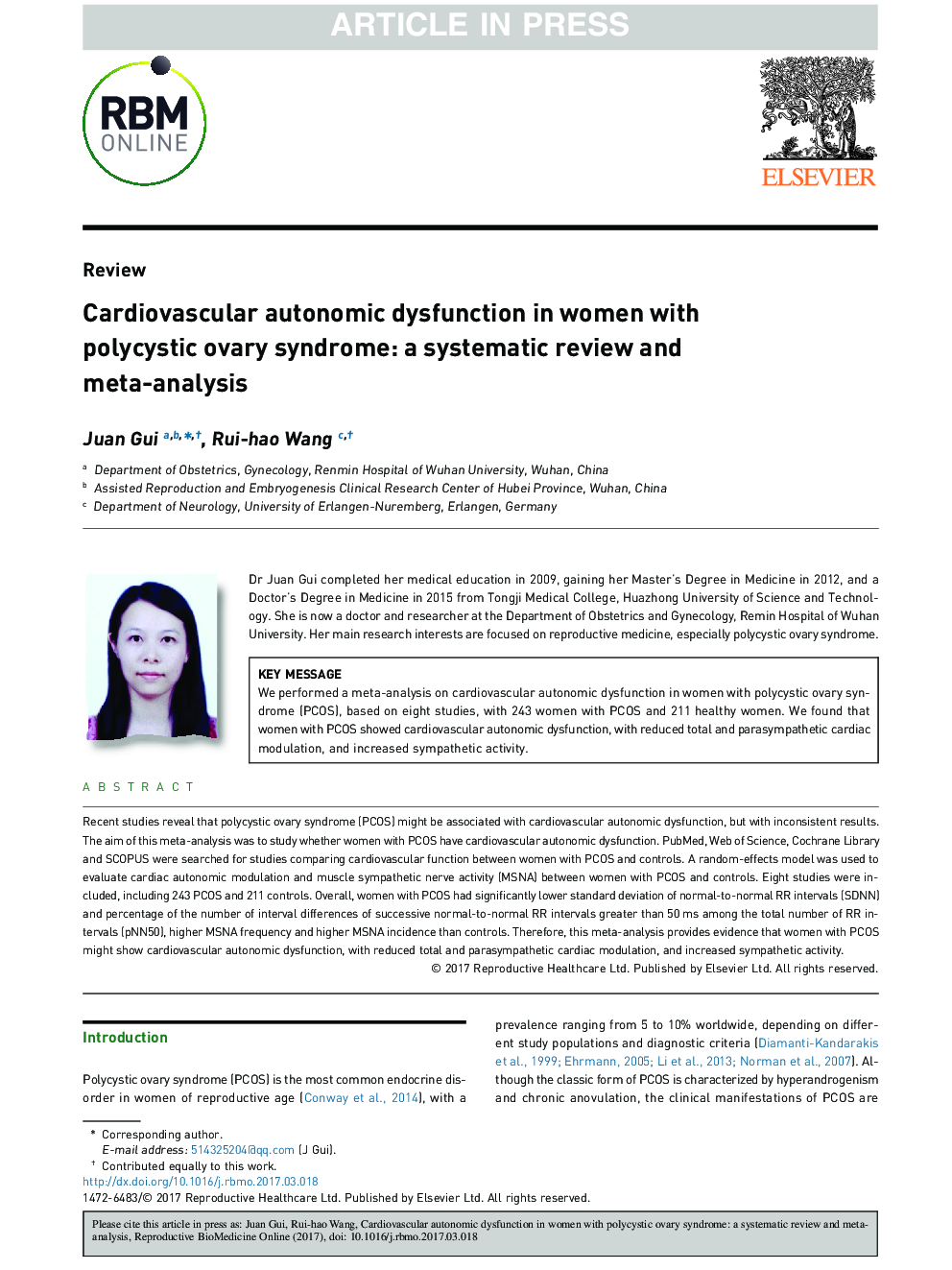| Article ID | Journal | Published Year | Pages | File Type |
|---|---|---|---|---|
| 5696673 | Reproductive BioMedicine Online | 2017 | 8 Pages |
Abstract
Recent studies reveal that polycystic ovary syndrome (PCOS) might be associated with cardiovascular autonomic dysfunction, but with inconsistent results. The aim of this meta-analysis was to study whether women with PCOS have cardiovascular autonomic dysfunction. PubMed, Web of Science, Cochrane Library and SCOPUS were searched for studies comparing cardiovascular function between women with PCOS and controls. A random-effects model was used to evaluate cardiac autonomic modulation and muscle sympathetic nerve activity (MSNA) between women with PCOS and controls. Eight studies were included, including 243 PCOS and 211 controls. Overall, women with PCOS had significantly lower standard deviation of normal-to-normal RR intervals (SDNN) and percentage of the number of interval differences of successive normal-to-normal RR intervals greater than 50âms among the total number of RR intervals (pNN50), higher MSNA frequency and higher MSNA incidence than controls. Therefore, this meta-analysis provides evidence that women with PCOS might show cardiovascular autonomic dysfunction, with reduced total and parasympathetic cardiac modulation, and increased sympathetic activity.
Related Topics
Health Sciences
Medicine and Dentistry
Obstetrics, Gynecology and Women's Health
Authors
Juan Gui, Rui-hao Wang,
